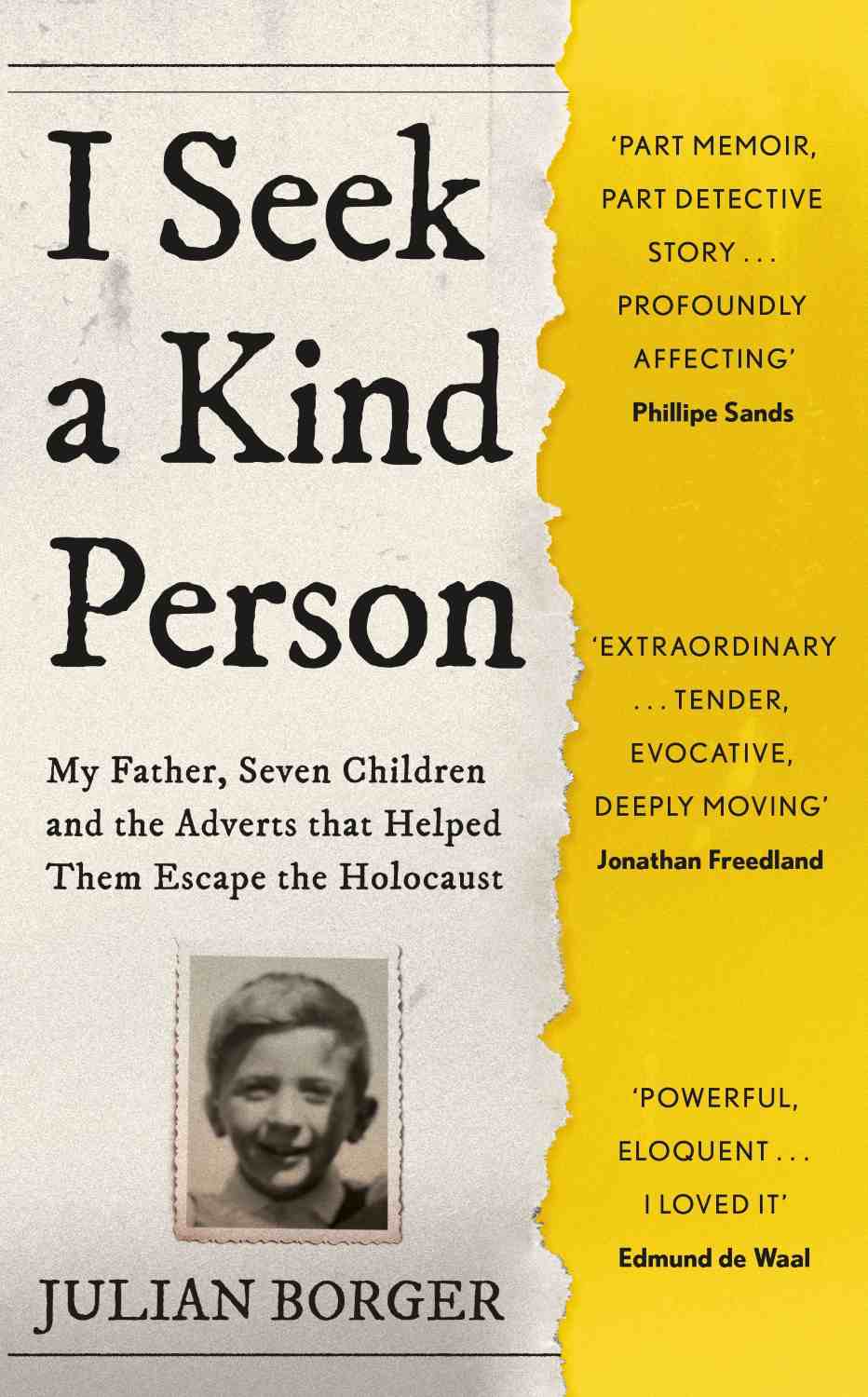Lord Sandwich reviews: 'I Seek a Kind Person'
August 1938: Leo Borger’s advertisement in The Manchester Guardian
4 min read
The extraordinary story of how Julian Borger’s father was rescued from the Nazis by two Welsh school teachers, this forensically researched and moving book is a testament to humanity’s remarkable capacity for kindness
Best summarised by its subtitle My Father, Seven Children and the Adverts that Helped Them Escape the Holocaust, this book is built around the extraordinary story of the author’s father, Robert (Bobby) Borger, whose Viennese family placed a small ad in The Manchester Guardian saying, “I seek a kind person who will educate my intelligent Boy, aged 11”.
And it worked. A kind person did come forward through the Jewish network, in the form of Mr and Mrs Bingley, schoolteachers in North Wales. It now seems remarkable that so many families all over Britain were ready to help. But of course they all had first-hand knowledge from their own contacts of what was happening.
The two critical dates that served as a warning were the Anschluss on 13 March 1938, Hitler’s annexation of Austria, and Kristallnacht, the pogrom of 9 and 10 November 1938, when Nazi paramilitary forces literally broke the windows of all Jewish families in Germany and Austria and ransacked their homes, making escape almost impossible. Nearly all of Vienna’s 22 synagogues were burned down.
Bobby’s father Leo was taking no chances and advertised him on 3 August 1938 alongside Gertrude Langer, aged 14. Another boy, 16-year-old Siegfried Neumann, placed an ad himself two months later after his father had been killed in Dachau.
It now seems remarkable that so many families all over Britain were ready to help
The children themselves, while not wanting to be separated from their own families, were just old enough to see the humiliation and persecution in the streets and to understand why they had to leave. But the drama concealed their terror of hearing pieces of news which gradually revealed the fate of their parents and siblings. There was no going back, and in almost every family there was someone who never survived the death camps.
There is a sad twist in the story when we learn how some children like Robert later in life refused to accept what had happened or even discuss the events with their own families – a clear demonstration of how the effects of the trauma of forced separation can last until adulthood.
Robert’s father Leo Borger had to endure the progressive confiscation of a successful family business, Radio Borger, which supplied radios and musical instruments. This meant not only a new Aryan owner but the discounting of all property and inevitable sale at a loss. Only the shop sign remains in Vienna today.
 Author Julian Borger is the well-known world affairs editor for The Guardian and has applied all his forensic journalistic skills in uncovering the names and stories of the other children who were advertised. He says finding them was “like jiggling a worn key in a lock” until it finally clicked. Some of the children were even sent to camps like Dachau before their families could secure them jobs or visas abroad.
Author Julian Borger is the well-known world affairs editor for The Guardian and has applied all his forensic journalistic skills in uncovering the names and stories of the other children who were advertised. He says finding them was “like jiggling a worn key in a lock” until it finally clicked. Some of the children were even sent to camps like Dachau before their families could secure them jobs or visas abroad.
Alice Hess trained to be a dress maker but was taught to use a lathe to make screws for the war effort. Several children who had travelled alone were required to find jobs for their parents to get them out of Vienna but this proved almost impossible: mothers used to a certain lifestyle were lucky to get anything better than housemaid. Once in the United Kingdom, when war started, male members of the family could be interned as enemy aliens.
It is a sombre and moving story, but the book provides some comfort in that a lot of young lives were saved: we are all lucky to have had the benefit of one vital page in The Manchester Guardian.
I Seek a Kind Person: My Father, Seven Children and the Adverts that Helped Them Escape the Holocaust
By: Julian Borger
Publisher: John Murray
